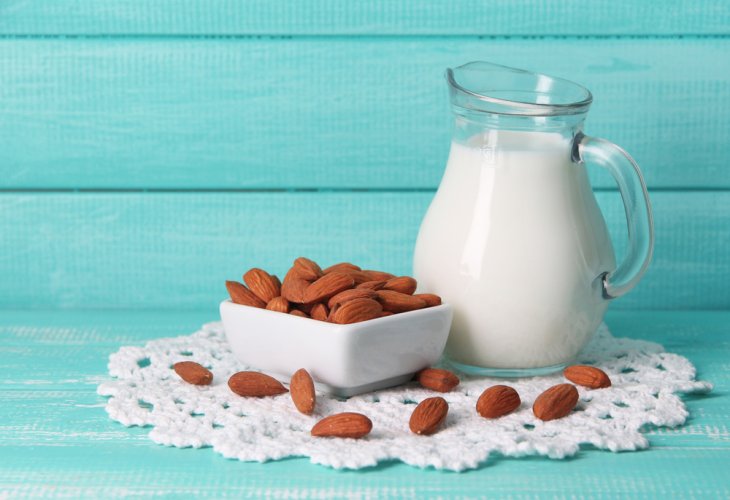Cow Milk vs. Almond Milk: What's the Healthier Choice?
What's the deal with cow milk? Discover alternative options and their benefits.
 (Photo: shutterstock)
(Photo: shutterstock)Many people are used to consuming cow milk products for protein and calcium intake. It's important to be aware that dairy can lead to health issues, especially due to overconsumption and how livestock is raised.
Health departments globally, including in Israel, don't oppose moderate consumption, recommending 2-3 servings of milk daily since they see it as a key calcium source. However, some argue milk proteins like casein and whey, found also in infant formulas, interfere with iron absorption in the digestive tract. It's no wonder anemia is common among children today, prompting healthcare providers to recommend iron supplements (there are other causes of anemia too, like poor nutrition, parasites such as Candida and Helicobacter pylori, and worms, which are iron thieves).
The fat content in milk is known to promote cholesterol buildup and deposits in our blood vessels, posing risks to our cardiovascular health. Compared to human breast milk, cow milk contains three times more protein and 50% more fat.
Milk is the most common allergen, with half of us being allergic to it. Symptoms can include respiratory issues, stomach pain, and various digestive problems. Ceasing consumption often significantly alleviates these symptoms (this includes cheese). Milk also contributes to migraines, runny nose, ear infections, intestinal problems, and asthma. As milk consumption increases, so does the likelihood of iron deficiency, acne, and phlegm production, exacerbating asthma, bronchitis, and sinusitis. Casein also causes chronic allergies and rheumatoid arthritis.
So, what's the solution for calcium and protein? In recent years, many have turned to plant-based milk alternatives (soy, almond, rice milk, etc.). Almond milk, for instance, is a fantastic, easily digestible option, especially when made at home. It's rich in quality protein, fat, and essential minerals like calcium. However, it's important to know that store-bought almond drinks contain less than half a handful of almonds—just 2% of the carton. With about 2 grams of almonds per liter, you're buying a product very low in protein, containing vitamins and minerals not derived from almonds and barely absorbed by the body. Remember that store products include many additives, vitamins, minerals, and emulsifiers, some of which may negatively affect digestive health.
The solution: make almond milk at home. Use Israeli almonds, which have more nutritional components than American ones. The easier option is to take a tablespoon of almond spread made from 100% almonds without additives (preferably organic), add a cup of water, and sweeten lightly with date syrup or natural molasses (rich in iron).
To book home workshops with naturopath Ruth Liat Faltz, free of charge, call 073-2221290

